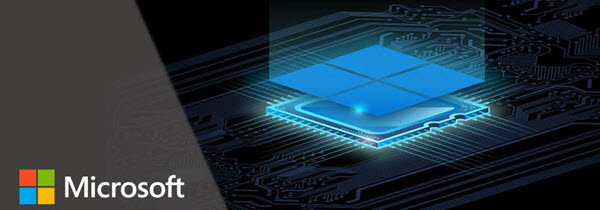Following a Tweet from a respected security source suggesting the release of a Windows 12, a number of tech sites started reporting the coming of Windows 12 as a distinct possibility. However, the original Tweet was subsequently taken down by the author with an apology explaining that it was meant as a joke.
So, is Windows 12 a part of Microsoft’s forward planning or not? At this stage, it is purely rumor-driven conjecture. However, while the original Tweeter scotched the idea with his retraction and apology, I have always been a firm believer in “where there’s smoke, there’s generally fire”.
That said, one aspect that this conjecture brought to light is that Microsoft, in partnership with CPU manufacturers, is planning to introduce a new security protocol similar to TPM but built into the processor.
Pluton – New Mandatory Requirement?
Regardless of questions/doubts over the Windows situation, the Microsoft Pluton security chip is a definite reality. I am far from an expert in these matters but upon reading Microsoft’s dissertation it seems that Pluton provides the same, or very similar, functionality as TPM. The problem with TPM, according to Microsoft, is that the data flow between the TPM chip and the CPU creates a channel of communication that’s open to exploitation. Building the same functionality directly into the CPU eliminates that channel and therefore also eliminates the potential for exploitation.
In short, Microsoft has gone from… TPM is the ultimate in security that every user needs to TPM is vulnerable so here’s a new security protocol that eliminates that vulnerability.
Attackers have begun to innovate ways to attack TPM, particularly in situations where an attacker can steal or temporarily gain physical access to a PC. These sophisticated attack techniques target the communication channel between the CPU and TPM, which is typically a bus interface. This bus interface provides the ability to share information between the main CPU and security processor, but it also provides an opportunity for attackers to steal or modify information in-transit using a physical attack. The Pluton design removes the potential for that communication channel to be attacked by building security directly into the CPU ~ source
- Read Microsoft’s publication in full: Meet the Microsoft Pluton Processor
Some experts are suggesting that a future Windows iteration — whether that be Windows 11 or 12 — will introduce Pluton as a mandatory requirement. Somehow, I doubt that considering such a move would eliminate ALL machines running CPUs without Pluton from meeting requirements and upgrading. Then again, it is Microsoft after all.
BOTTON LINE:
Recent decisions by Microsoft tend to suggest that the company is no longer interested in home users. Everything they do, especially introducing mandatory so-called security protocols such as TPM and Pluton, is geared toward appealing to the corporate sector and appeasing digital rights agitators.
As fellow author, Marc Thomas points out in his recent article — 5 Reasons Why Windows 11 Sucks — home users survived quite well for many years without Secure Boot and for many more years without TPM.
Let’s face it, Microsoft has not made any significant dollars from home users for years, giving away free upgrades, while the cost of the support infrastructure must still be quite substantial. On the other hand, the corporate sector remains a steady and viable source of revenue.
In other words, MS does not give a crap about home users.
—



Is this a premonition of 11 becoming another Win 8?